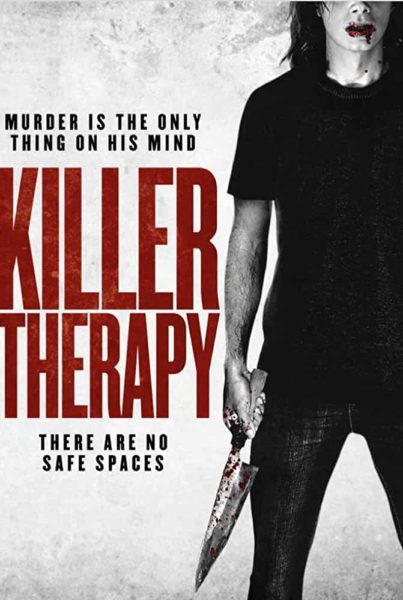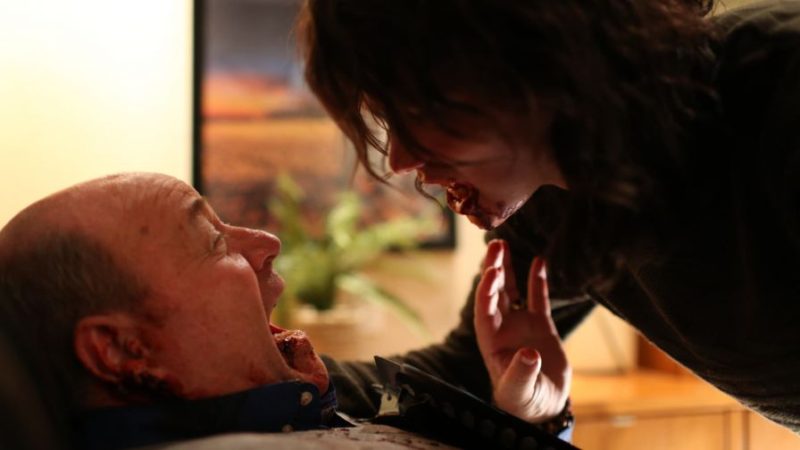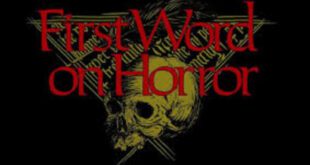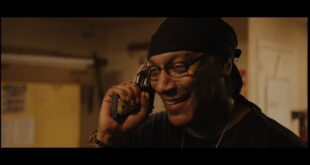I recently watched the new horror film, Killer Therapy. It was directed by Barry Jay and stars Nicole Marie Appleby, Skyler Caleb, Lola Davidson, Michael Dempsey, Michael Qeliqi, and Jonathan Tysor, plus many other iconic horror actors make an appearance.

Synopsis for Killer Therapy
A tormented and angry man named Brian targets bullies, his stepsister Aubrey and a series of therapists in a homicidal rampage to avenge his shattered life. His downfall begins at a young age, when he reacts with hostility to his newly adopted stepsister. Brian’s outbursts and unearned malevolence towards Aubrey lead his parents to take the boy to see a psychologist. During their sessions, the doctor sexually molests Brian repeatedly and swears him to secrecy. This trauma leads to the accidental death of a bully and Brian being incarcerated in a mental hospital for 6 years. When he’s eventually released as an adult, the trouble really kicks into high gear.

Killer Therapy is a good example of a story that highlights how much character perspective matters in any narrative. Although Brian commits many violent acts against people who are either guilty or innocent, there’s an odd sense that we are meant to root for him. His perspective dominates the narrative, and the sexual trauma he endured as a child softens our judgment of his brutal and impulsive nature later on.
It’s a tribute to screenwriters Andrew Krop and Barry Jay that Brian is not a Michael Myers clone. He’s not another implacable, unknowable, and silent killing machine at all. He’s very human and believably troubled, and the two actors who portray him (Michael Qeliqi, Jonathan Tysor) do really excellent work keeping Brian’s struggle feeling authentic.

In every other slasher movie, it seems like some faceless maniac escapes a mental hospital and instantly goes on a killing spree as if they are required to. Those kinds of films tend to leave out characterization and nuance and replace them with stabbings and gore. And they also treat mental illness as if anyone who has any form of it is automatically a serial killer. What Killer Therapy does right is that it shows a realistic progression of denial, trauma, and anger leading up to a final breakdown. Brian doesn’t just break out of the asylum and suddenly slaughter teens having a sleepover, like Russ Thorn in Slumber Party Massacre. We see the situations that ultimately lead to death and mayhem slowly build up.

The film’s trailer and cover art would have you believe that Brian only targets the four therapists he sees over the course of the film, which is not exactly true. He kills other folks before finally getting around to the therapists in the final 20 minutes. Some of the revenge attacks are clever and satisfying, and some feel glossed over and a bit rushed. This is a film with a whole lot of tension building, and I think we needed a clearer and more concise series of payoffs in terms of Brian’s crazed vengeance. That’s just about my only real criticism. It’s well-acted, intelligent, and mostly believable. Like Todd Phillips’s Joker, Killer Therapy is the story of the mental health system failing someone who goes on to become a threat.
It’s also worth mentioning that the film features some well known horror movie veterans. Thom Mathews (Friday The 13th Part 6: Jason Lives, Return Of The Living Dead franchise) plays Brian’s alcoholic father, Adrienne King (Friday The 13th franchise) and PJ Soles (Halloween, Carrie, The Devil’s Rejects) both play therapists, and Daeg Faerch (Rob Zombie’s Halloween, Josie) plays a high school bully. And not only is it fun seeing familiar faces, but they all also do great work together. Thom Mathews, in particular, gives a terrific performance as a father with zero patience who eventually watches his formerly happy life fall apart around him.

Killer Therapy is currently available on Amazon Prime Video, VOD, and Sky. Be sure to check it out and let us know what you think!
 PopHorror Let's Get Scared
PopHorror Let's Get Scared




